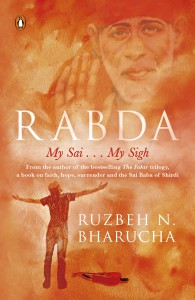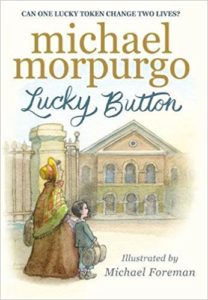 ‘Baba, there are so many who are going through hell. the Hindus believe that there are thirty-three crore Gods and Goddesses and there are so many Masters. I mean there are more Gods in heaven than there are people in a few countries down here on Mother Earth. Why can’t you all just work something out and tell those going through their private hell?’
‘Baba, there are so many who are going through hell. the Hindus believe that there are thirty-three crore Gods and Goddesses and there are so many Masters. I mean there are more Gods in heaven than there are people in a few countries down here on Mother Earth. Why can’t you all just work something out and tell those going through their private hell?’
‘You are such a classical idiot, my daft child. The answer is simple, Rabda. Either you believe that God does not exist, there is no Supreme Power running this grand show, or you believe in a just God. You cannot believe in a God who exists but is unjust. God is completely just. S(H)e loves each and every being, no matter how seemingly insignificant it may be to others. God exists and throbs in a worm just as S(H)e breathes and works through a perfect Master and archangels.’ ( p.52)
I am not a regular reader of spiritual books but a lot of people I know are devout followers of Sai Baba of Shirdi. So when I spotted Rabda: My Sai…My Sigh I was intrigued. Ruzbeh N. Bharucha too one had heard of. The book is about Rabda who has attempted suicide and Sai Baba of Shirdi who enters the hospital room and awakens the spirit body of Rabda. From then on, it is a conversation that flips back and forth in time. For once, the book blurb says it well: “Set in the present, Rabda takes the reader to the past, to when the Sai lived in His physical body. The life and philosophy of Sai Baba of Shirdi are revealed, often in His own words, and questions pertaining to Him and spirituality are answered.” What I found fascinating while reading this book was the stress on establishing the Sufi principles of the Sai Baba are very clear. Till I read this book, I had no idea that the Sai Baba was a spiritual leader for communities across religions. Otherwise the saffronisation of the Sai Baba is the dominant image in public discourse. ( The book jacket is in saffron.) I strongly suspect this book will be a sleeper hit. It is not the publicity buzz but word-of-mouth recommendations that will propel book sales.
After reading the book, I emailed Ruzbeh Bharucha a bunch of questions. Here is the edited version:
How long did this book take you to write?
It took me forty days to write the book. I researched for two months prior that but most of the conversations and ideology of BABA has come through naturally while writing the book. Trust me. The book wrote itself or if I don’t sound too preachy, BABA must have for some reason known best to HIM, wrote the book, as HE couldn’t leave something so important to a dork like me.
What prompted you to write a history about the Sai Baba? Are they not enough books published on the Sai Baba?
No amount of books can do justice to a Master. I also wanted to bring about three things from Rabda. First and foremost I wanted to focus on BABA’s ideology and not the innumerable miracles performed by BABA. Most books focus on the miracles. HE is a Master so HE better perform miracles. No big deal :-). Secondly I wanted to bring forth BABA’s spiritual Oneness and HIS sufism. His words and conversations with Abdul, HIS disciple, who recorded BABA’s preachings are rarely spoken or written about. Thirdly, I wanted BABA’s schedule, style of speaking, HIS Divine madness and HIS humaneness and sense of humour and HIS flowery abusive language to flow through which not many books bring forth. BABA was GOD in man. I wanted both GOD and man to come forth.
The writing makes me feel as if you are a medium for Sai Baba. I may be wrong and my apologies for asking this. I know little about spiritual writing or even different beliefs. But are you a medium? Your website describes you as a “Channel”? What is the difference?
I really don’t know if BABA comes through me. And if HE does I have no idea why. I certainly am flawed nice and proper. Medium or Channel or Instrument are merely words. They mean the same thing that the grace and love and wisdom and guidance of the Master flows through the individual. But I believe we all are mediums when we do something right, humane, compassionate.
There is a line in Mike Dooley’s The Top Ten Things Dead People Want to Tell You which says ” Religion needs spirituality. Spirituality does not need religion.” What do you think?
Religion now is used to bring forth duality and discord while spirituality, then, now and for eternity will always bring forth Oneness. Relgion is a code of rules. Spirituality is the breath of the Divine.
How did you venture into writing books about spirituality?
Since a child I have always been fascinated with the paranormal. I have always seen the futility of existence as we know it. Have been taken to innumerable sages, sufis, mediums, since a child, with the hope that I would behave like a rational human being and They have for some reason always treated me with lot of love and humour. At the age of seventeen yoga brought forth the sanity of going within and The Autobiography of a Yogi, which I read at the age of eighteen made me realise that the world of the spirit was far more real and fascinating than our so called real but mundane world. And then of course researching for The Last Marathon, my first book on spirit communication and life after death made me realise that I love spirits; both the paranormal and the drinking type like absinthe and sake and fenny. Spirits rock. Apart from this, as I channel and people come from all over, I have realised that if I can write about the world of spirits, channeling, Masters, may be my existence and burden on mother Earth, could be partially justified. Also I like to believe, that most Zoroastrians are either paranormal or abnormal. I chose the former hee hee.
Ruzbeh N. Bharucha Rabda: My Sai . . . My Sigh Penguin Ananda, an imprint of Penguin Books, Gurgaon, India. Pb. pp.278 Rs 299
29 December 2014
 In an interesting coincidence two stories I read recently — Michael Morpurgo’s beautiful Lucky Button and the short story “They call me Ramatanu” in Subhadra Sengupta’s A Bagful of History — both involved ghosts and eminent musicians. Lucky Button is a haunting tale about the Foundling Hospital which opened in London in 1741. Its patrons included the cartoonist William Hogarth and musician Handel whose Messiah was often sung in the building. One of the foundlings later becomes a friendly ghost who remains in the chapel. Centuries later when young Jonah takes refuge in the building to escape his class bullies, the ghost makes himself visible to the boy and tells him a tale — a tale of his life as an orphan who found happiness for a while as the young prodigy, Mozart’s, companion on his trip to Britain. For Jonah music especially Handel’s music and Mozart’s piano compositions are dear since they remind him of his mother’s fondness for the compositions when she was fit and well and not confined to her wheelchair. It is like all the stories Michael Morpurgo spins — evocative and memorable.
In an interesting coincidence two stories I read recently — Michael Morpurgo’s beautiful Lucky Button and the short story “They call me Ramatanu” in Subhadra Sengupta’s A Bagful of History — both involved ghosts and eminent musicians. Lucky Button is a haunting tale about the Foundling Hospital which opened in London in 1741. Its patrons included the cartoonist William Hogarth and musician Handel whose Messiah was often sung in the building. One of the foundlings later becomes a friendly ghost who remains in the chapel. Centuries later when young Jonah takes refuge in the building to escape his class bullies, the ghost makes himself visible to the boy and tells him a tale — a tale of his life as an orphan who found happiness for a while as the young prodigy, Mozart’s, companion on his trip to Britain. For Jonah music especially Handel’s music and Mozart’s piano compositions are dear since they remind him of his mother’s fondness for the compositions when she was fit and well and not confined to her wheelchair. It is like all the stories Michael Morpurgo spins — evocative and memorable.
